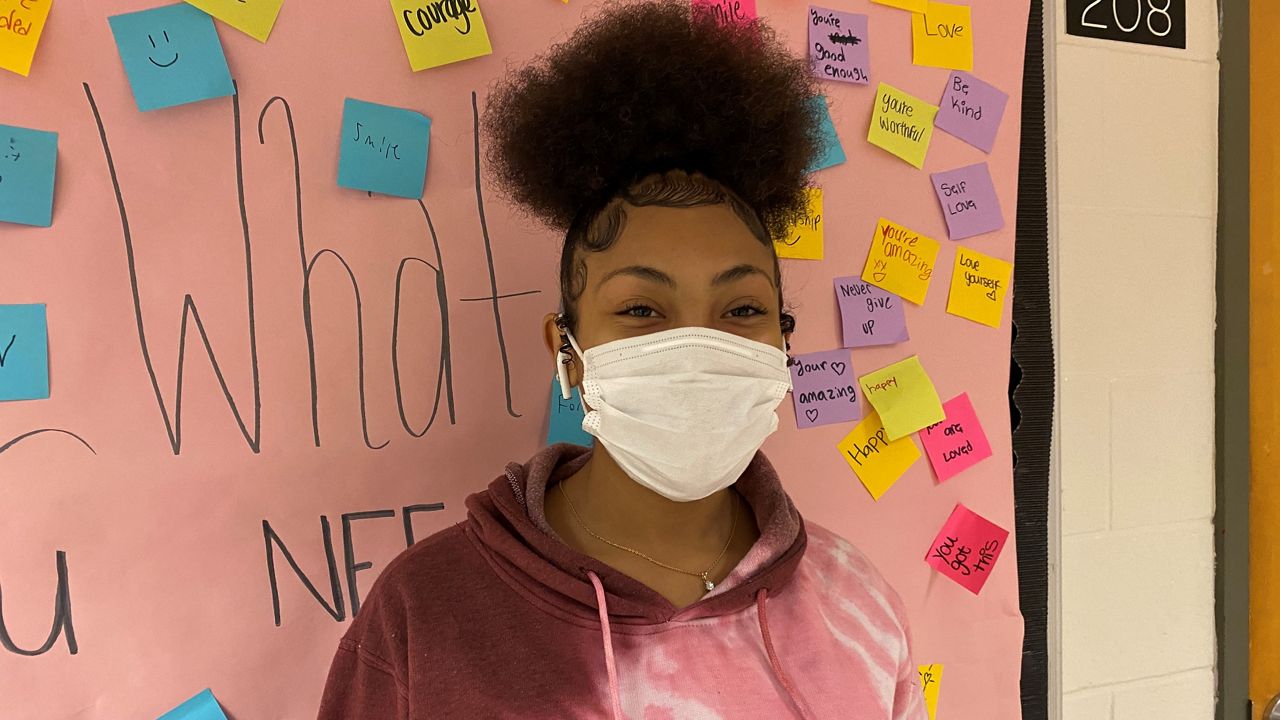LOUISVILLE, Ky. — Studies show that all students benefit from diversity in classrooms. Having diverse teachers promotes positive leadership and improves classroom experiences, but some Kentucky schools have no minority teachers at all.
What You Need To Know
- 75.3% of Kentucky public school students are white
- Less than 5% of public school teachers are people of color
- Having diverse teachers can benefit all students
- A longtime teacher believes lack of respect and low pay for teachers is why there are so few teachers of color
Less than 5% percent, (2,063 of 42,304) of Kentucky public school teachers are people of color, but the number of minority students (68,799) is five times greater according to the Kentucky Department of Education.
That means that some students are never taught by a person who looks like them.
Seneca High School junior Janasia Bell is counting down the days until she graduates just so she can return to the classroom.

The basketball player is on the early childhood education career pathway.
The early childhood education career pathway is also offered at Atherton and Fairdale High school. Students in the program complete an assessment and can even earn a preprofessional certification.
“It’s rare to find a teacher that really looks like me because most teachers aren’t the same as me,” says Bell.
She can count on one hand the number of minority teachers she’s had since kindergarten.
That’s a flipped narrative for Seneca High School English teacher Dr. Christine Young.
“I never had a white teacher until I got to Kentucky State University because we were still segregated,” says Young. “When I tell my students that when we talk and I tell them that they're amazed because now it’s kind of on the flip side, most of their teachers are non-minorities.”
Young says she has always wanted to be a teacher. Young has a bachelor’s degree, two masters, and a doctorate related to education.
“I don't I can't get another degree. I guess I could, but I don't have money. So, now I just learned on my own,” says Young.
The first-generation college graduate launched her teaching career with Teach for America before joining Jefferson County Public Schools in 1986.
“It was unusual it was a rude awakening because there were very few black teachers to where I went. There were very few black teachers and definitely very few black students,” says Young.
Dr. Young is JCPS’s longest-serving black teacher. Over her near four-decade teaching career she has seen a spike in diversity among students.
“Seneca is a hodgepodge of cultures, so I had to learn a lot about various cultures and I can't speak their languages, but of course they come in they’re trying to speak English, but it's a lot of other things besides just the language barrier like their holidays, how they feel about certain things, how their parents respond, how they respond to women, how they respond to men,” says Young. “I've had to learn a lot. I love the idea that I get to learn about other kids and I learned through them. So I just don't teach them they teach me.”
She wishes the same was true among minority teachers and that there were more minority males in the classroom as opposed to just in gyms and working in maintenance and security.
“There is nothing wrong with any of that because we need all of but I sure wish we could get more males more minority males to get into the teaching profession,” says Young.
She says she’s not surprised that less than 5% of the state’s public school teachers are minorities.
“We know that the largest amount of teachers are white females and I'm sure that has been because they always had more privileges to get the education so it's thought a way back,” says Young. “Now that we as minorities have more opportunities I think that we choose other fields because we can because we can.”
Young believes the pay and lack of respect for teachers is the reason why.
“When you are a minority sometimes even though there's another spouse working the income is still not as well, so you have to kind of pick up a job where you can make more money and so I think that's another reason why we don't have is many in education,” says Young. “You could write your own ticket because so many people are dropping out of the teaching profession and isn't that unfortunate? Who's gonna take care of our babies?”
Passionate teachers like Young are inspiring students like bell to follow in their footsteps.
Bell’s grandmother, a recently retired early childhood educator also plays a role in her goal.
“She inspired me to be the person that I really am today. She always tells me to never give up and keep trying and always keep doing that, so I love her so much for that,” says bell.
Dr. Young has no plans to end her streak with JCPS yet, so one day Bell could be her co-worker.
